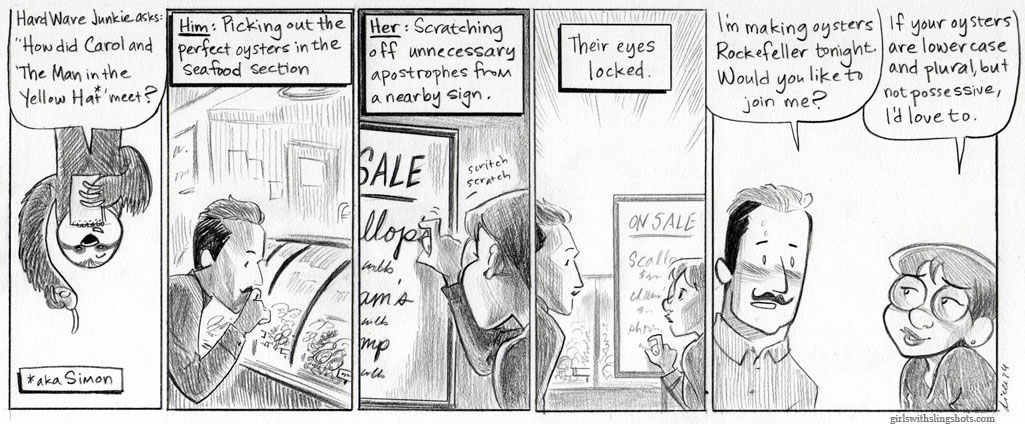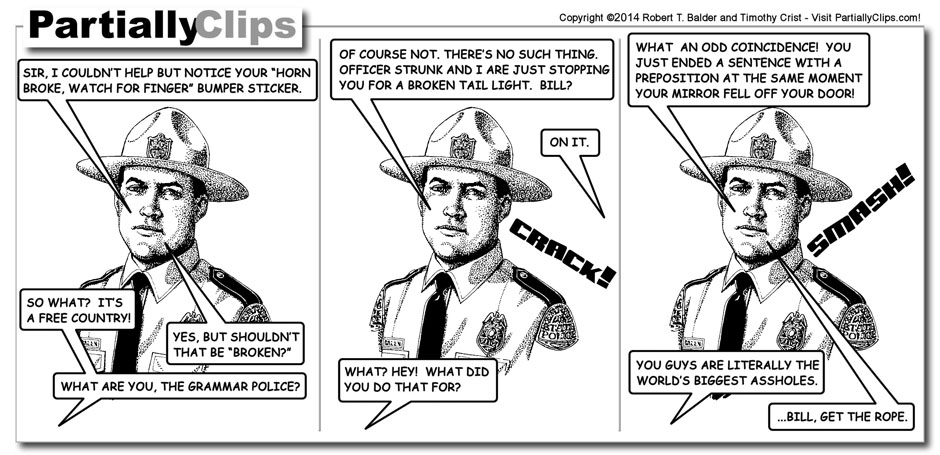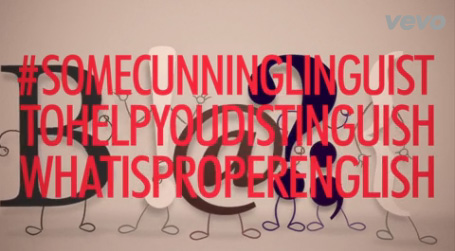Alison Flood at Guardian Books extracts a famous author's top linguistic peeves from an interview about how to teach writing ("Stephen King has named his most hated expressions. What are yours?", 9/15/2014),
The Atlantic’s fantastic interview on teaching, writing and reading with Stephen King is well worth reading in full. […] But perhaps the most interesting part is where teacher and writer Jessica Lahey wrangles out of King what his most irritating phrases of the moment are. […] Naming her own most irksome new phrase as “on accident” – and I’m slightly bemused as to how to use this one, so can happily state I’ve not sinned here – Lahey asked King if he had any additions to this list.
King's response was rather mild:
“’Some people say’, or ‘Many believe,’ or ‘The consensus is’. That kind of lazy attribution makes me want to kick something. Also, IMHO, YOLO, and LOL,” said the novelist.
So Flood confesses her own sin, identifying her "own most irritating word/phrase of the moment: brainchild", and then gets to the clickbait point, inviting her readers to let their own peeve flags fly:
I have used it in the past, on a few occasions , and I’m cringing to see it. What a terrible mutant hybrid of a word – why not just say “idea”? Why does it have to be the child of a brain? I vow, here and now, never to let it darken my keyboard again. […] Comfort me, please, with your own moments of linguistic shame – and your current most-hated turns of phrase."
Read the rest of this entry »




